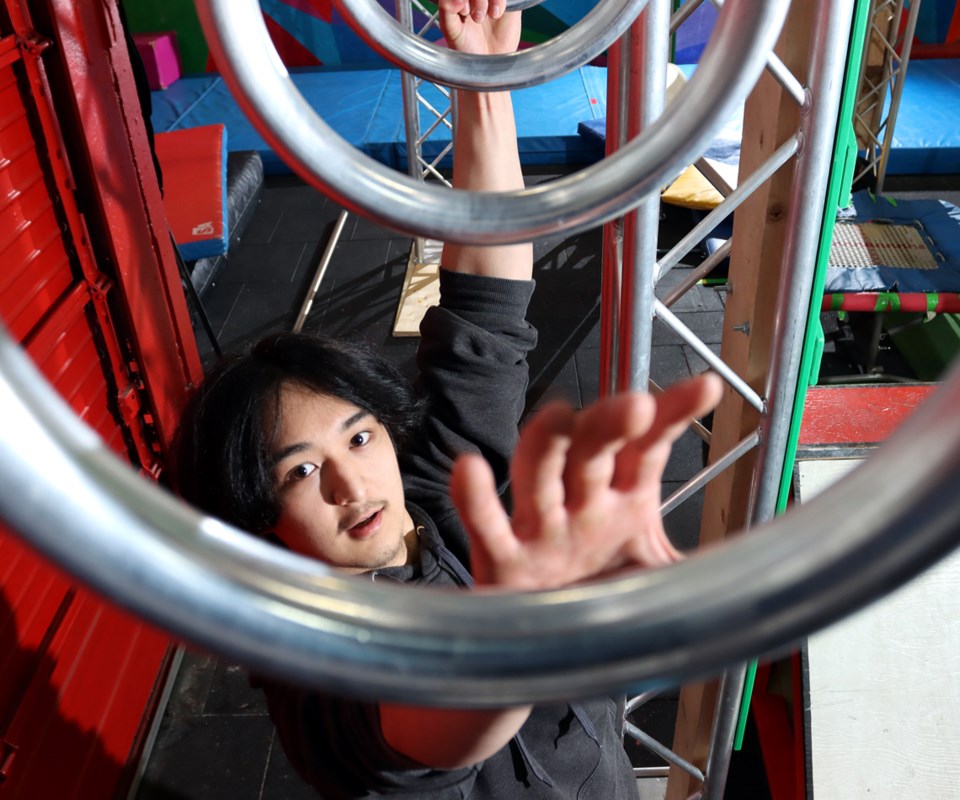Port Coquitlam’s Jaden Miki is a world champion ninja.
But the city’s bad guys need not fear his skills with a Shuriken or Kusarigama.
Miki, 18, competes in the National Ninja League where athletes are challenged against the clock to complete a series of obstacles using skills like climbing, parkour and gymnastics.
He recently finished atop a field of more than 180 men and women to win the NNL’s adult world championship in Greensboro, N.C., as well as the title of strongest ninja.
Miki, who’s been a competitive ninja for five years, said his success on the world stage was a little unexpected.
He was only hoping to make it to the competition’s third round that whittles the field of athletes down to the best 14.
But when Miki’s cumulative score of completed obstacles was combined with the time in which he finished the course put him atop the leader board, he said the feeling was “awesome.”
Competitive ninja sports is like the TV show American Ninja Warrior, minus the flashy lights, raucous music and enthusiastic announcers.
Nevertheless, Miki said, traversing ledges, hoisting his way up a “salmon ladder” and navigating spinning boxes in front about 1,000 spectators and hundreds of fellow competitors in the Greensboro Coliseum Complex brought its own special set of nerves.
Ninja athletes don’t just have to be strong and agile to swing, leap, run and hoist their way through the obstacles; they also have to be
- quick-witted to plan their course
- analytical to weigh the risk versus reward for various tasks
- focused to shut out all distractions, as a moment’s inattention can send them plummeting to the mat
As competitors advance through the three rounds, the obstacles get progressively more difficult, the grips on the climbing wall get smaller, the distance that has to be traversed between challenges widens and time limits to navigate the course compress.
Miki said the pressure is immense. “It’s nerve wracking.”
Miki, who trains about 20 hours a week at Momentum Ninja gym in Port Coquitlam and also works on his strength and conditioning in the garage at his family’s home, said mental fortitude is as much a component of ninja sports as strength and agility.
Once he gets a chance to eyeball a course, he begins to visualize his own navigation of the obstacles, plotting his route, rating the risks of various manoeuvres.
Sometimes the safest option is the best, but as the stakes increase so does the need to take a few chances.
“In the back of your mind, you don’t want to mess this up,” he said.
Miki’s success in Greensboro means he now moves up the competitive ladder to the pro/elite field.
To up his game, he’s taken a gap year after graduating from Riverside Secondary so he can dedicate more time to training.
His first test as world champion will come at the Canadian Ninja League finals and then the Ultimate Ninja Athlete Association World Series championship final in Las Vegas in July.



